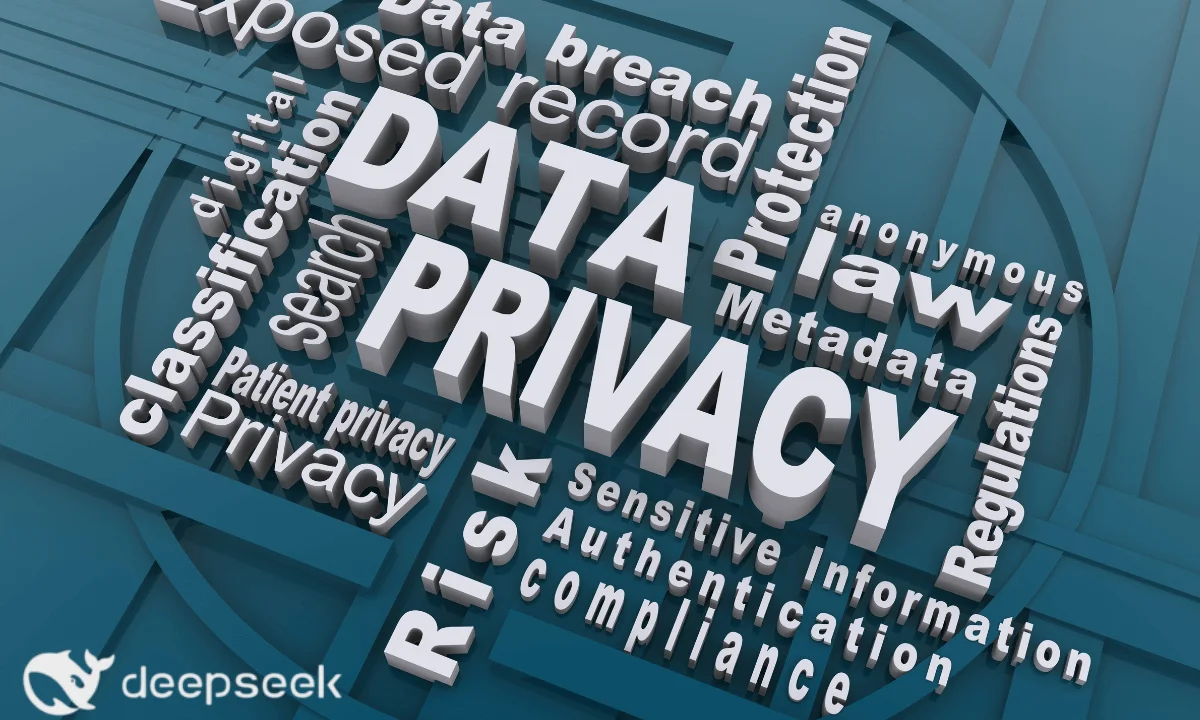Data Privacy in the Age of AI: What Pakistan Needs to Know
Introduction
Data Privacy: Artificial Intelligence (AI) is rapidly transforming the world, reshaping industries, and influencing everyday life. From healthcare and education to financial services and governance, AI tools are becoming a vital part of Pakistan’s digital future. However, as AI adoption grows, the challenge of data privacy becomes more critical. With vast amounts of personal data being collected, processed, and analyzed, citizens and businesses alike are raising concerns about how this data is stored, used, and protected.
This article explores the importance of data privacy in the age of AI, Pakistan’s current landscape, key challenges, and practical steps the country needs to take to protect its citizens in the digital era.
Bias in AI: How DeepSeek is Tackling Algorithmic Fairness
Why Data Privacy Matters in the AI Era
AI relies on massive datasets to function effectively. Whether it is facial recognition, chatbots, or predictive analytics, algorithms thrive on data. However, this reliance also raises questions:
- Who controls the data?
- How securely is it stored?
- Can it be misused by third parties?
In countries like Pakistan, where digital literacy is still growing, the risks are higher. Without clear regulations and awareness, citizens may unknowingly share sensitive information such as identity card numbers, health data, or financial records. If misused, this can lead to fraud, surveillance, or even identity theft.
AI and Cultural Preservation: Saving Pakistan’s Heritage with Tech
The Current Data Privacy Landscape in Pakistan
Pakistan has made some progress in addressing data security, but challenges remain.
- Legislative Efforts
Pakistan introduced the Personal Data Protection Bill (PDPB), which aims to regulate how organizations collect and process personal information. However, the bill has faced delays and criticism regarding its enforcement mechanisms. - Digital Infrastructure Gaps
While internet penetration is increasing, cybersecurity infrastructure remains underdeveloped. Public and private organizations often lack strong security frameworks to protect data from cyberattacks. - Lack of Public Awareness
Many Pakistani citizens are unaware of how much data they share daily through mobile apps, e-commerce websites, and even government portals. This makes them vulnerable to exploitation.
How Pakistani YouTubers are Teaching AI to Millions
Key Challenges for Pakistan in Data Privacy and AI
Despite progress, several challenges must be addressed:
- Weak Cybersecurity Practices
Many organizations in Pakistan still rely on outdated security protocols, making them easy targets for hackers. - Insufficient Regulations
Unlike the European Union’s GDPR (General Data Protection Regulation), Pakistan’s proposed laws are still evolving and lack strict enforcement. - Data Misuse by Companies
Many businesses collect user data without informed consent, using it for targeted marketing or selling it to third parties. - AI-Driven Surveillance Risks
With AI-powered CCTV and facial recognition being deployed in some areas, concerns about privacy and misuse by authorities are increasing.
AI for Disaster Management: Lessons from Pakistan’s Flood Crisis
Global Lessons Pakistan Can Learn
To strengthen its data privacy framework, Pakistan can draw inspiration from international models:
- GDPR (Europe): Provides strong safeguards, ensuring users have control over their personal information.
- CCPA (California): Grants citizens the right to know how their data is used and to opt out of data sharing.
- Singapore’s PDPA: Focuses on business compliance while balancing innovation and data security.
Adapting similar models can help Pakistan establish robust privacy laws that protect individuals without stifling innovation.
DeepSeek AI’s Community Outreach: Free Workshops for Students
Steps Pakistan Needs to Take for Stronger Data Privacy
To prepare for the age of AI, Pakistan must adopt a proactive approach. Some key steps include:
- Implement Comprehensive Data Protection Laws
Finalize and enforce the Personal Data Protection Bill with strict penalties for misuse. The law should cover both private and government institutions. - Establish a Data Protection Authority
An independent body should monitor compliance, investigate breaches, and regulate AI-driven data usage. - Encourage Cybersecurity Investment
Businesses and public institutions must adopt modern encryption, secure servers, and regular audits to protect data. - Raise Public Awareness
Citizens should be educated on safe online practices, including password security, app permissions, and data-sharing risks. - Promote Ethical AI Development
Pakistani tech startups and research institutions should embed AI ethics into their projects, ensuring transparency and accountability in data usage. - International Collaboration
Partnering with global organizations on cybersecurity and data privacy can help Pakistan adopt best practices and strengthen digital governance.
Pakistani AI Influencers You Should Follow in 2025
The Role of Individuals in Protecting Data Privacy
While laws and policies are essential, individuals also play a major role in protecting their personal data. Some practical steps include:
- Using strong, unique passwords.
- Avoiding oversharing personal details on social media.
- Carefully reading app permissions before installation.
- Using secure payment gateways for online transactions.
- Staying updated about common online scams and phishing attempts.
Bridging the Digital Divide: AI Education in Rural Pakistan
Future Outlook: Balancing AI Innovation and Privacy
As Pakistan accelerates its AI adoption in healthcare, banking, agriculture, and governance, the need to balance innovation with privacy will become even more pressing. AI can help the country achieve economic growth, but without proper safeguards, it risks creating mistrust among citizens.
A privacy-first approach will not only protect individuals but also build public confidence in AI systems. By investing in strong policies, ethical frameworks, and awareness campaigns, Pakistan can ensure that the benefits of AI do not come at the cost of citizen rights.
Startup Spotlight: AI Ventures Thriving in Islamabad’s Tech Hub
Conclusion
Data privacy in the age of AI is no longer an option but a necessity for Pakistan. With growing digital adoption, the risks of data misuse, cybercrime, and unauthorized surveillance are rising. By enforcing stronger regulations, building public awareness, and encouraging ethical AI development, Pakistan can secure its citizens’ data while harnessing the full potential of artificial intelligence.
The future of Pakistan’s digital transformation depends on striking the right balance—innovation with responsibility, and progress with privacy.
AI Literacy: Why Pakistani Schools Need to Teach Machine Learning







